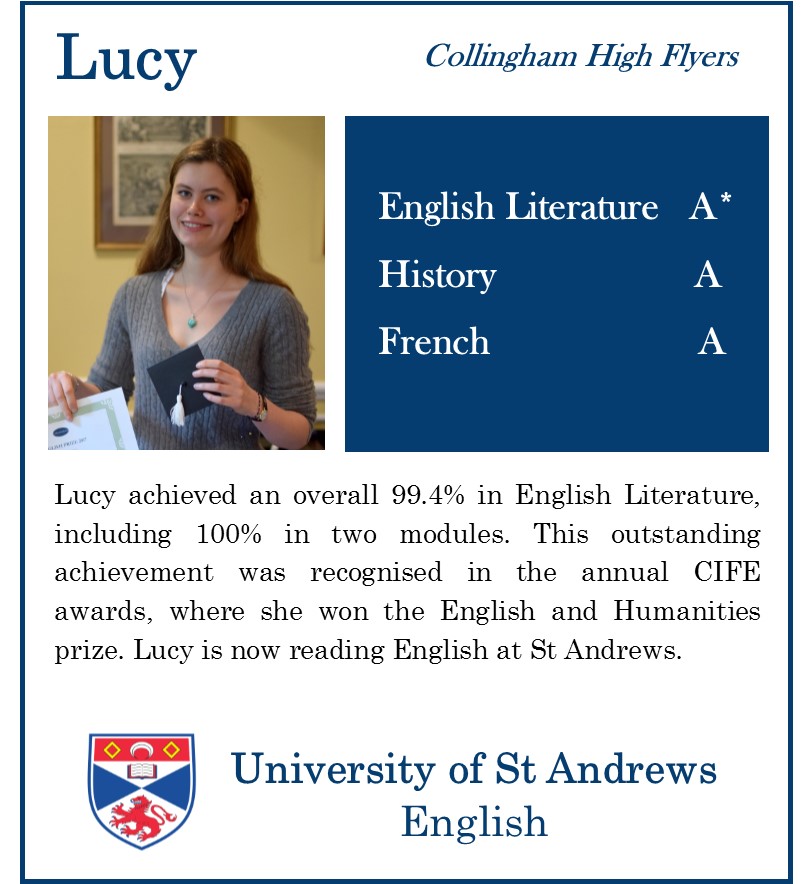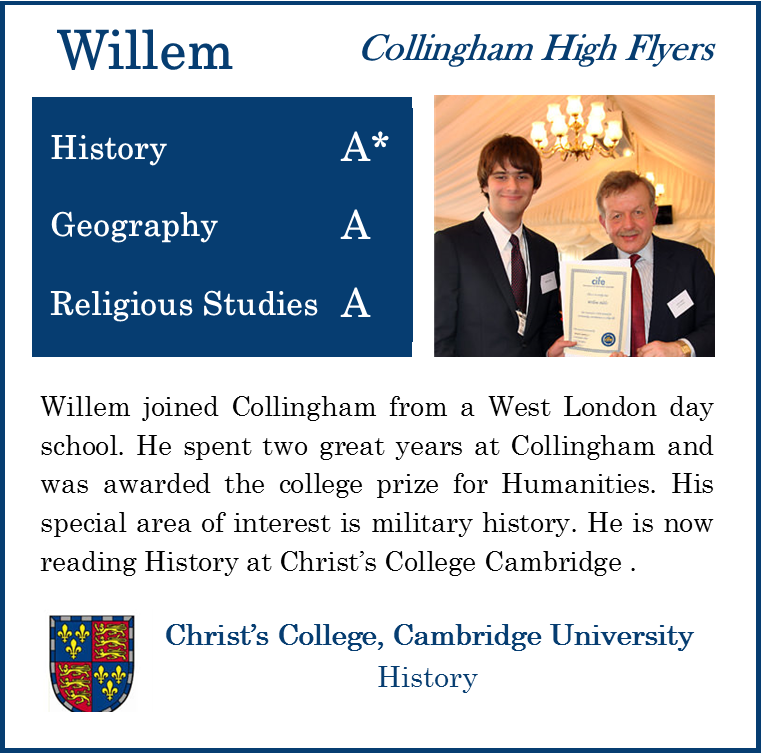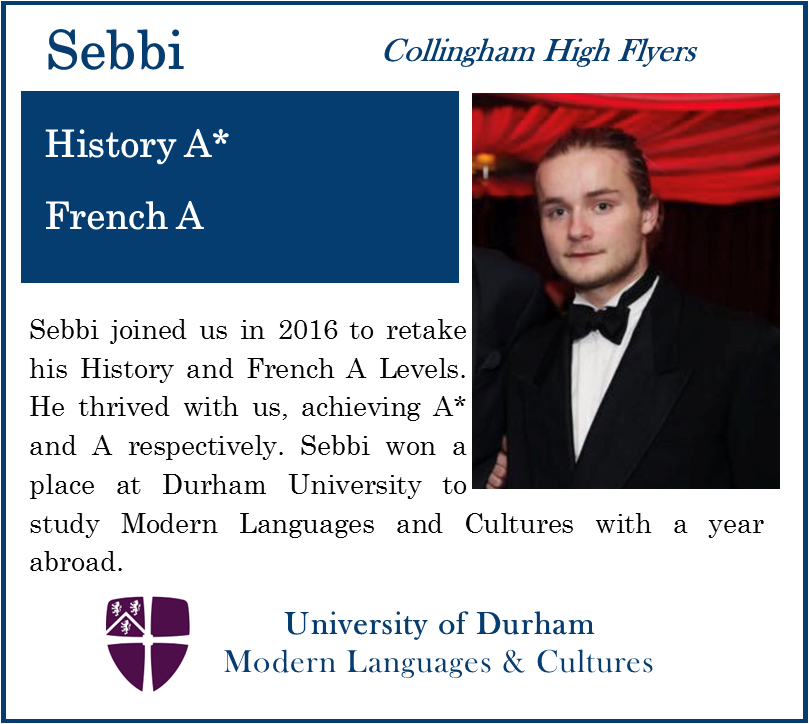The course
Most people follow a two-year course, focussing on key themes in modern history. The first year covers the transition from democracy to dictatorship and then back to democracy again in twentieth century Germany and Italy. The second year involves a study of the impact of warfare on Britain in the nineteenth and early twentieth centuries, and coursework based on historians interpretations of Nazi Germany. The Department can also cover other topics and periods as required.
The History Department’s approach is designed to combine a clear explanation of events with class discussion and detailed work on how to answer questions. We put a lot of stress on planning answers, working in timed conditions and, in general, preparing you to give the examiners exactly what they want, so that they will give you exactly what you want – the right grade.
Some people choose to study History at A level because they want to go on and do a History degree. Most of our students, however, use their History qualification to help them to get into a good university to study another subject such as English, Law or Business Studies. University admissions tutors know that someone with a high grade in History will be able to understand a problem quickly, and deal with it using a thorough argument backed by the right evidence. The analytical and communication skills you will develop in History are vital to the study of any subject at university, and indeed for most jobs in business or the professions as well. Previous students have won the annual CIFE awards, you can find out more here.
Students who are fluent with words and arguments will obviously find History attractive, but if you are not, the subject is an ideal way to build up your confidence and expertise. You do not need to have done History GCSE, or have any prior knowledge of the topics we study, although it may help a little at first if you do. History is often studied alongside subjects like English, Classics, Languages, Politics or Economics, but almost any combination is possible.
Preferred Board: Edexcel


